7 Best Herbal Tinctures For Snoring
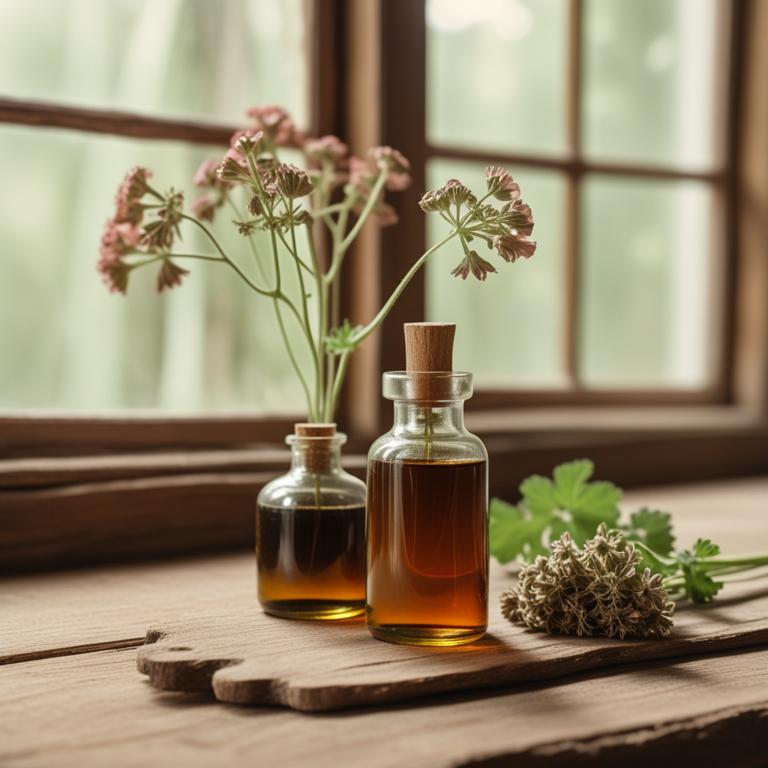
Herbal tinctures for Snoring are liquid extracts made from various herbs that help alleviate the symptoms of snoring, a common sleep disorder characterized by loud breathing sounds during sleep.
These natural remedies offer numerous benefits, including promoting relaxation, reducing inflammation in the nasal passages, and improving breathing patterns.
Examples of herbal tinctures used to treat snoring include Peppermint, which helps to open up airways, Thyme, which has antimicrobial properties to fight off infections, Eucalyptus, which eases congestion, Ginger, which reduces inflammation, and Licorice root, which soothes and calms the throat muscles.
By using these herbal tinctures, individuals can experience a reduction in snoring frequency and severity, leading to a more peaceful and restful sleep.
According to "Phytotherapy research : PTR", tinctures for snoring may be effective in reducing snoring, as a double-blind study found a significant reduction in snoring reported by bed partners in a group of snoring volunteers using either an essential oil spray or gargle formulation.
Below there's a list of the 7 best herbal tinctures for snoring.
- 1. Thymus vulgaris tinctures
- 2. Zingiber officinale tinctures
- 3. Cinchona officinalis tinctures
- 4. Lavandula angustifolia tinctures
- 5. Eucalyptus globulus tinctures
- 6. Lavandula latifolia tinctures
- 7. Cinnamomum verum tinctures
Also you may be interested in...
TODAY'S FREE BOUNDLE
Herb Drying Checklist + Herbal Tea Shopping List + Medicinal Herbs Flashcards
Enter you best email address below to receive this bundle (3 product valued $19.95) for FREE + exclusive access to The Aphotecary Letter.
$19.95 -> $0.00
1. Thymus vulgaris tinctures
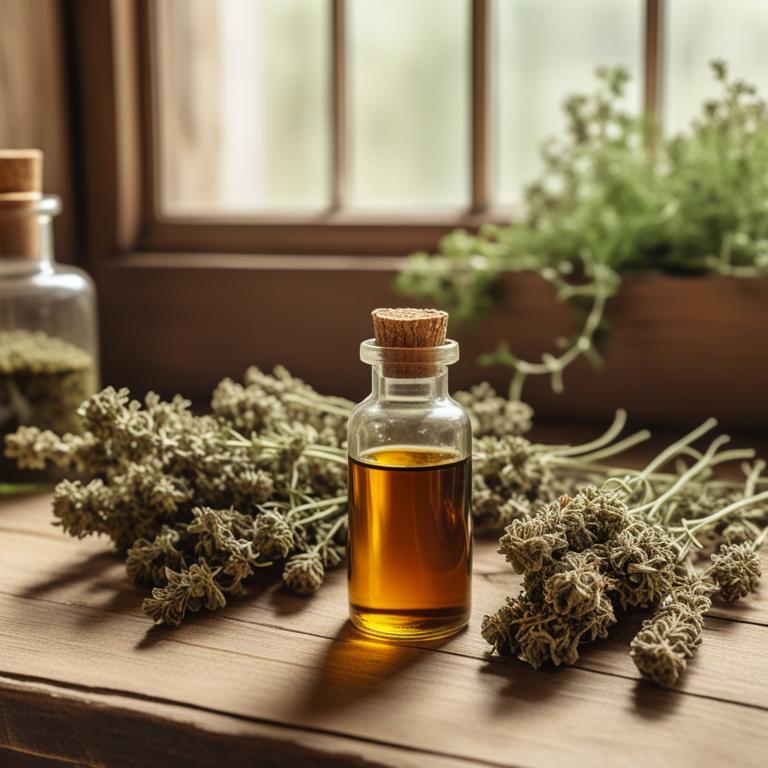
Thymus vulgaris tinctures have been traditionally used to treat snoring due to their spasmolytic and expectorant properties, which help to relax the muscles in the throat and reduce inflammation.
The bioactive constituents, such as thymol and carvacrol, have antimicrobial properties that help to clear the airways and reduce the production of mucus.
This herbal preparation helps to treat snoring by reducing the obstruction of the airways and promoting a clearer respiratory tract.
The benefits of using Thymus vulgaris tinctures to treat snoring include improved sleep quality, reduced snoring frequency, and a decrease in the risk of sleep apnea.
2. Zingiber officinale tinctures

Zingiber officinale tinctures have been used traditionally to help alleviate snoring, a common symptom of sleep apnea and other respiratory disorders.
The properties of this herbal preparation, including its anti-inflammatory and antioxidant properties, help to reduce swelling in the nasal passages and promote healthy breathing.
The bioactive constituents of Zingiber officinale tinctures, such as gingerols and shogaols, possess bronchodilatory and expectorant properties that help to open airways and relieve congestion, thus reducing snoring.
The benefits of using Zingiber officinale tinctures to treat snoring include improved sleep quality, reduced symptoms of sleep apnea, and enhanced respiratory health.
3. Cinchona officinalis tinctures

Cinchona officinalis tinctures have been traditionally used to treat snoring ailments due to their properties as a natural vasodilator and antioxidant.
The tinctures help to treat snoring by reducing inflammation in the nasal passages and sinuses, thereby improving breathing and airflow.
The bioactive constituents of Cinchona officinalis, including quinovic acid and quinine, exhibit anti-inflammatory and antihistamine properties that contribute to its effectiveness in treating snoring.
The benefits of using Cinchona officinalis tinctures to treat snoring include reduced symptoms, improved sleep quality, and a natural alternative to conventional medications.
4. Lavandula angustifolia tinctures
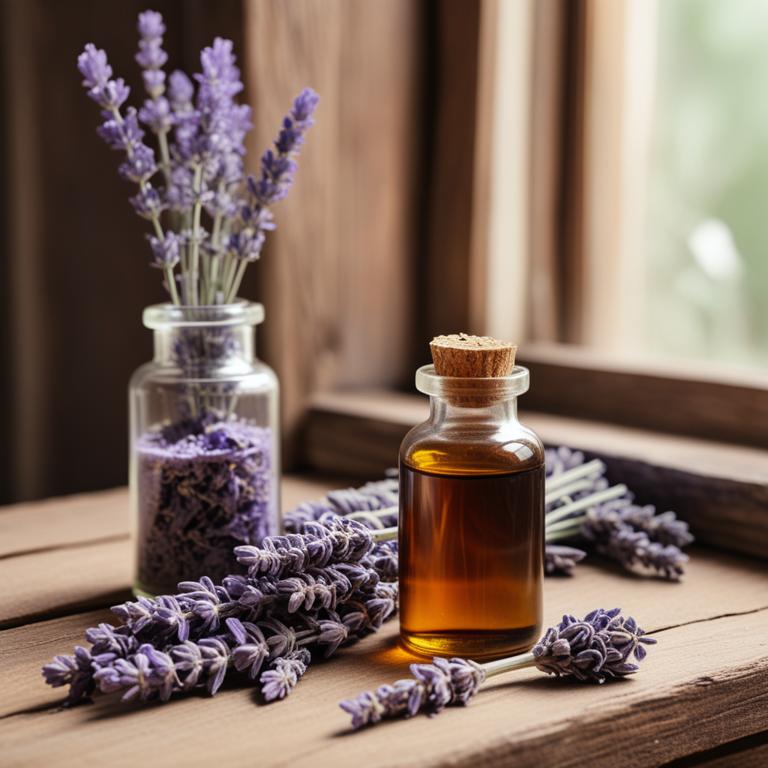
Lavandula angustifolia tinctures are a natural herbal preparation that have been studied for their potential to help treat snoring.
The properties of this preparation, including its anti-inflammatory and antispasmodic effects, help to relax the throat muscles and improve breathing, thereby reducing snoring.
The bioactive constituents of Lavandula angustifolia, such as linalool and linalyl acetate, contribute to its therapeutic effects by reducing inflammation and promoting relaxation.
By using Lavandula angustifolia tinctures, individuals can benefit from reduced snoring, improved sleep quality, and a decrease in symptoms associated with sleep apnea.
5. Eucalyptus globulus tinctures
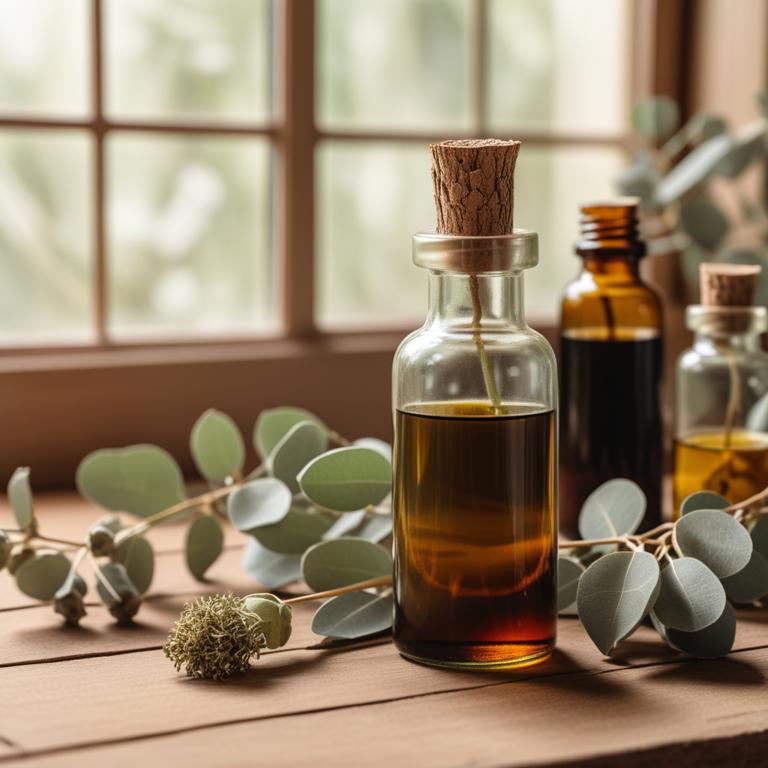
Eucalyptus globulus tinctures have been traditionally used to treat snoring ailments due to their decongestant and anti-inflammatory properties, which help to reduce nasal congestion and swelling in the nasal passages.
The bioactive constituents of Eucalyptus globulus, including cineole and eucalyptol, help to thin mucus and promote drainage, thereby reducing snoring caused by nasal congestion.
By reducing inflammation and congestion in the nasal passages, Eucalyptus globulus tinctures can help to improve breathing and reduce snoring episodes.
The benefits of using Eucalyptus globulus tinctures to treat snoring include improved sleep quality, reduced snoring frequency, and a reduced risk of sleep apnea and other respiratory disorders.
6. Lavandula latifolia tinctures
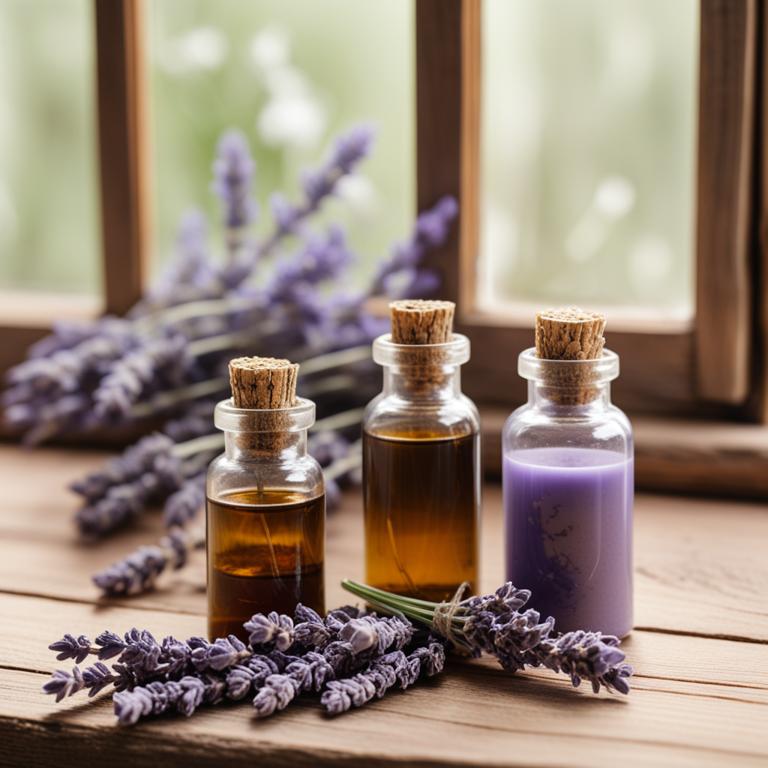
Lavandula latifolia tinctures have been traditionally used to treat snoring due to their calming and relaxing properties, which help to reduce stress and anxiety that can contribute to snoring.
The herbal preparation helps to treat snoring by promoting better sleep quality and reducing inflammation in the nasal passages, which can cause snoring.
The bioactive constituents of Lavandula latifolia, including linalool and linalyl acetate, have been shown to have anti-inflammatory and antiseptic properties, which can help to soothe and calm the airways, reducing the likelihood of snoring.
The benefits of using Lavandula latifolia tinctures to treat snoring include improved sleep quality, reduced snoring episodes, and a reduction in the risk of sleep apnea and other related health issues.
7. Cinnamomum verum tinctures
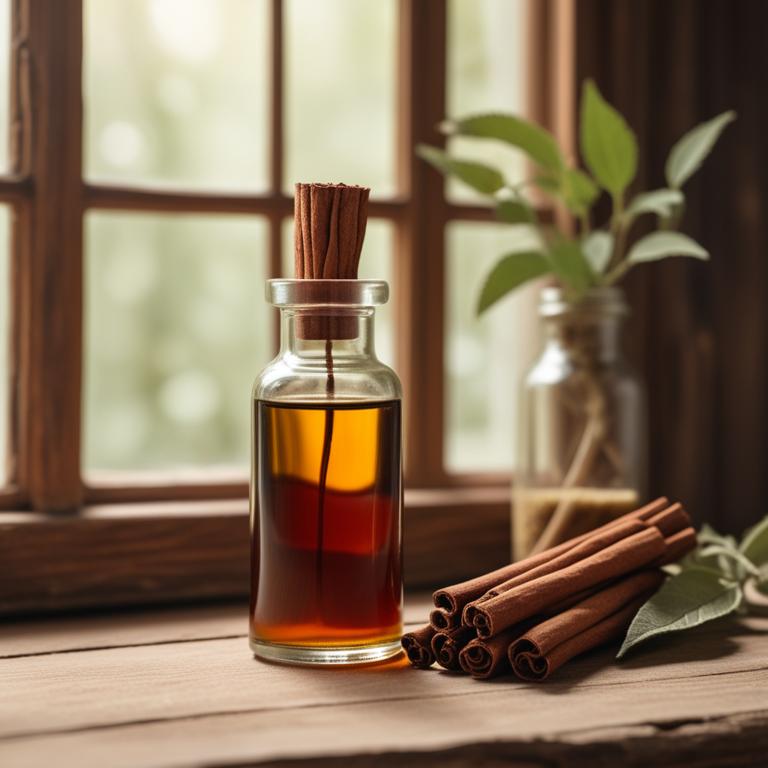
Cinnamomum verum tinctures have been traditionally used to treat snoring ailment due to their anti-inflammatory and antioxidant properties.
The bioactive constituents of Cinnamomum verum, such as cinnamaldehyde and eugenol, help to reduce inflammation in the nasal passages and throat, thereby alleviating snoring symptoms.
By reducing inflammation and congestion, Cinnamomum verum tinctures help to improve breathing and prevent the vibrations in the throat that cause snoring.
The benefits of using Cinnamomum verum tinctures to treat snoring include improved sleep quality, reduced risk of sleep apnea, and a decrease in the severity of snoring episodes.